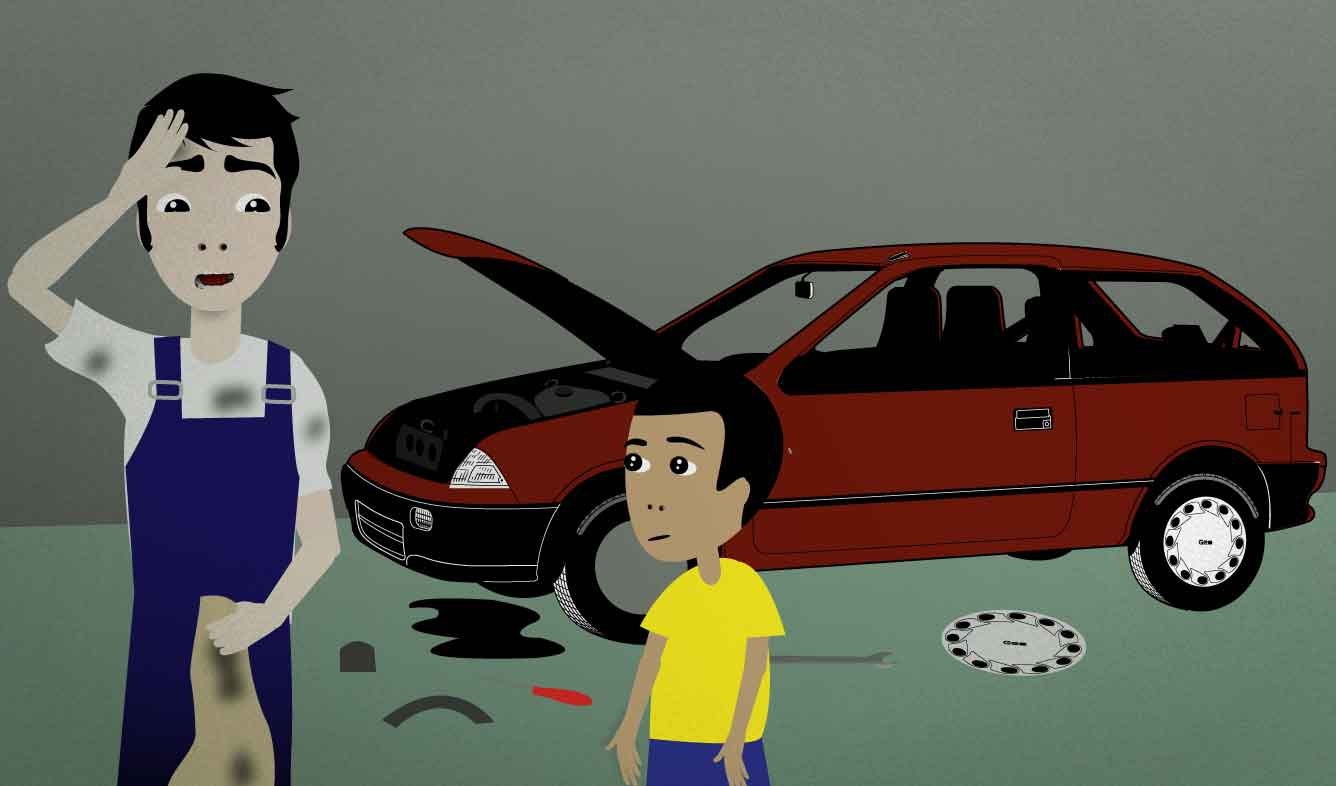“Hmm... well, I must admit: I'm stumped.”
You've been trying to fix a problem with your car's engine, with your son helping you. You tried to fix it in a few different ways, but now you don't have any more ideas. You say this to your son.
Hmm... well, I must admit: I'm stumped.
Want Video and Sound? Follow us on YouTube

Well
One reason for saying "well" at the beginning of a sentence is to show that you're unsure about something.
This can happen when someone asks you a question that you don't immediately know the answer to:
A: What are you doing this weekend?
B: Well, let's see... Oh! I'm having lunch with Gavin on Saturday.
It can also happen when you're trying to say something nice, even though you're thinking things that aren't nice.
A: What do you think of Lana?
B: Well... she's... always very punctual.
You shouldn't use "well" in this way in formal written English.
Hmm.
This is a noise that English speakers make to show that they're thinking hard about something. When you're trying to figure something out, make this noise:
Hmm. I'm not sure about that. Let me get back to you.
I must admit, (clause)
You start a sentence with "I must admit..." when you're telling people something that you feel just a little bit guilty or embarrassed about:
I must admit, I'm not very good at this sort of thing.
You can also say "I must admit..." when someone else impresses you more than you expected:
I must admit, you're quite a singer.
You don't use this for things that you feel really guilty about, like making a big mistake at work.
You can also use the phrase "I have to admit" in a similar way.
(someone) is stumped
Being "stumped" means that you don't know the answer to something, and you don't have any more ideas about how to solve it. For example, you might say this to another student about your math homework:
A: Do you know how to solve number 15?
B: No, I'm stumped.
This idiom doesn't sound too negative. It is fine to use in either formal or casual situations.
